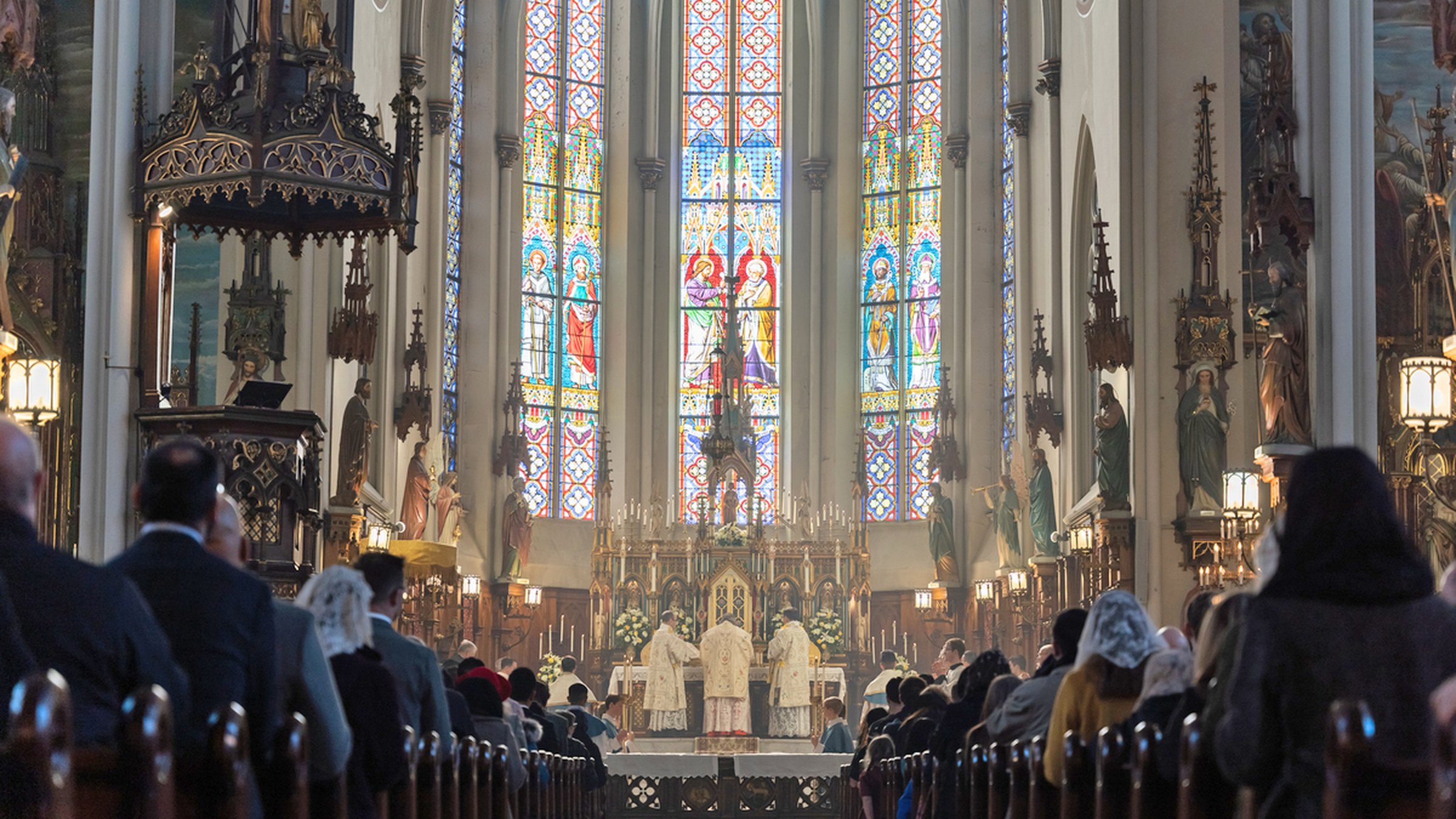Extraordinary form liturgies may continue at St. Joseph Shrine; non-parish settings to be established in archdiocese's four regions
DETROIT — On April 16, the Archdiocese of Detroit issued an update on local efforts to provide for the celebration of liturgies and sacraments according to the 1962 Roman Missal in southeast Michigan.
Following the promulgation of Pope Francis’ 2021 apostolic letter, Traditionis custodes, which established worldwide limits and norms for the celebration of extraordinary form liturgies — commonly known as the traditional Latin Mass — the Archdiocese of Detroit “sought to establish a pathway for the Mass to be celebrated according to the 1962 Missale Romanum,” while ensuring the local Church remains in conformity with the Holy See’s directives, according to a statement posted on the archdiocesan website.
In a recent meeting with priests of the Archdiocese of Detroit, Archbishop Edward J. Weisenburger offered an update on this effort.
Traditionis custodes allows bishops to grant permission for certain pre-existing groups and personal parishes to continue celebrating according to the 1962 missal, but reserves exclusively to the Holy See the ability to allow extraordinary form Masses in parish churches, the archdiocese clarified.
A “personal parish” is a parish set up to serve the faithful in a specific way — such as according to a particular rite, language or nationality — as opposed to territorial parishes, which are erected to serve Catholics in particular geographic areas.
St. Joseph Shrine, in Detroit’s Eastern Market district, is the only personal parish in the Archdiocese of Detroit that is set up to care for the faithful according to the 1962 Roman Missal.
“The ministry of St. Joseph Shrine in Detroit, functioning specifically to care for Christ’s faithful who desire to participate in the Traditional Latin Mass, will continue,” the archdiocese’s statement said. “Since 2016, this community has been under the care of the canons of the Institute of Christ the King Sovereign Priest, a society of apostolic life with a special focus on celebration of the Mass according to the 1962 Missale Romanum.”
However, because local bishops no longer possess the ability to permit the celebration of extraordinary form liturgies in parish churches, “the prior permissions to celebrate this liturgy in Archdiocesan parish churches — which expire on July 1, 2025 — cannot be renewed,” the archdiocese explained.
However, bishops may permit the celebration of extraordinary form liturgies “in non-parish settings” — such as shrines and chapels — and Archbishop Weisenburger intends to identify “a non-parish setting where the Traditional Latin Mass may be celebrated in each of the Archdiocese’s four regions,” the statement continued.
“In accordance with recent decisions by the Vatican’s Dicastery for Divine Worship and Discipline of the Sacraments, these locations will not be parish churches. Once these locations are determined, they will be shared with the faithful,” the statement said. “Archbishop Weisenburger plans to continue discernment and consultation on this matter during the next several months.”










